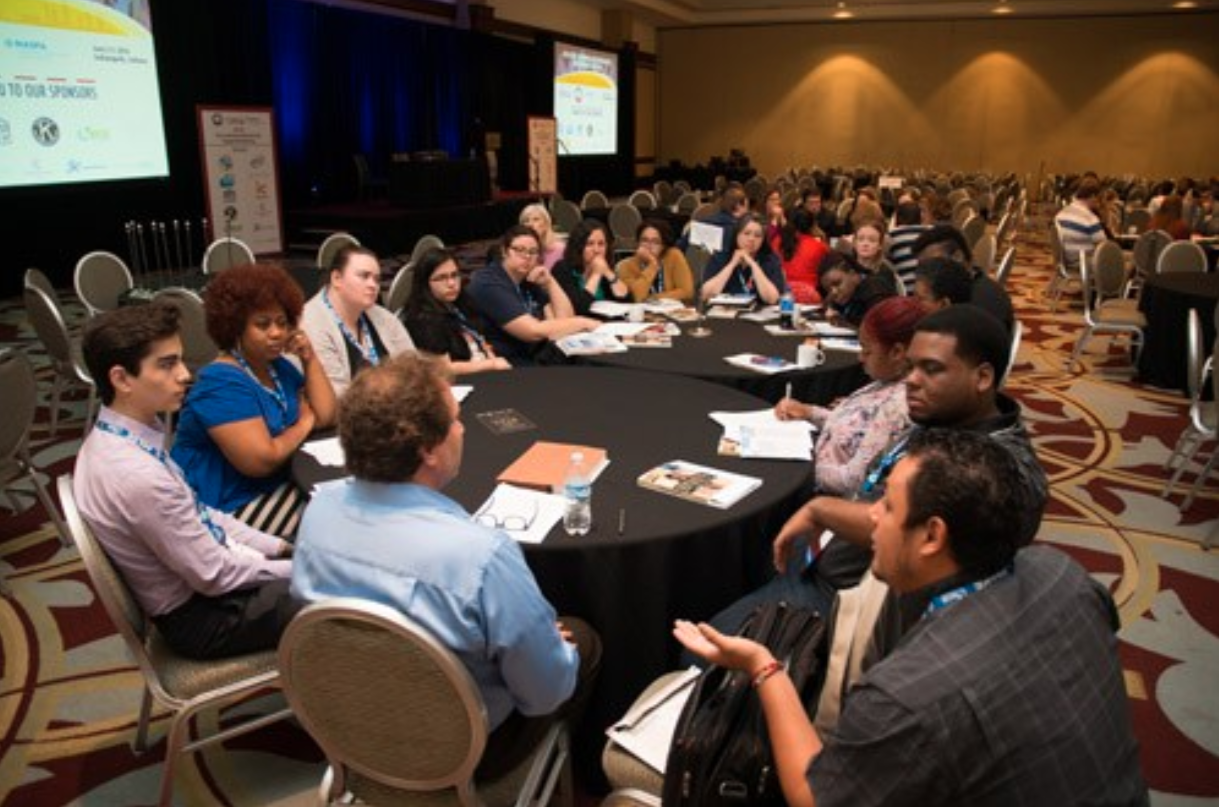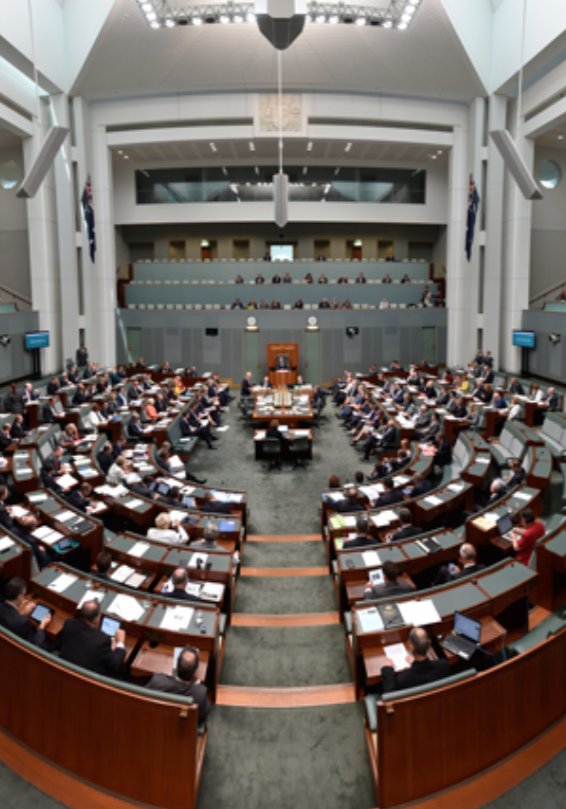Help
WHAT IS AN ISSUE?
An issue can be any problem or topic in your community that needs to be addressed.
If you are a leader of a community and you are logged in, you can create an issue by clicking on "Issues" in the sidebar, then "New Issue” button (see image).
If you are not a leader, you can make an issue suggestion for the leader to review. In the future, you will have the ability to post an issue with crowd moderation taking place.
WHAT IS A solution?
A solution is the objective that you think your community should have in relation to the issue - the end point that you want to eventually achieve.
The same solution can be linked to more than one issue. Solutions should be written in general language, allowing for various, more precise proposals to fall under them.
If you are a leader of a community and you are logged in, you can create a solution by clicking on the “+” symbol while looking at the issue (see image).
If you are not a leader, you can make an solution suggestion for the leader to review. In the future, you will have the ability to post a solution with crowd moderation taking place.
What is an action?
An action is a clarification or a next actionable step of a solution. Actions fall under solutions and the same action can be linked to more than one solution. Solutions should be specific.
If you are a leader of a community and you are logged in, you can create a solution by clicking on the “+” symbol while looking at the issue (see image).
If you are not a leader, you can make an action suggestion for the leader to review. In the future, you will have the ability to post a solution with crowd moderation taking place.
what is an information summary?
The information summary provides space for an unbiased, neutral summary of the facts of the issue for you to be informed before engaging in debate and casting your vote.
If you are a leader of a community and you are logged in, you can edit an information summary by clicking on the pen symbol while looking at the issue (see image).
If you are not a leader, you can make an information summary suggestion for the leader to review. In the future, the information summary will be a publicly editable wiki (like Wikipedia) so that it will benefit from the "thousand eyes" effect.
WHAT is the 3rd party media?
The media section is a list of websites that have been added to the issue to assist you to understand the issue, it's solutions and proposals better.
You can like the media by pressing the “thumbs up” if you think it is worthy. The more likes a media item gets, the more prominent it will display.
If you are a leader of a community and you are logged in, you can post a URL by clicking on the media symbol while looking at the issue (see image).
We will scrape the page for a title and picture. You can edit these if they are not to your liking.
what is crowd moderation?
Crowd moderation will mean that any 3rd party media issue, solution or action suggested by you will be sent to a random 5% of users to approve it, prior to it going public on the app.
In the current beta of the app we do not have crowd moderation, but in the future we will integrate this.
how do I create an account?
You’ll need to make an account using an email address and mobile number to get started. If you do not have one or either of these things, email us at hello@newvote.org.
If you have an email address and a mobile number, you can:
Click the ‘Create Account’ button in the top right hand corner of the screen,
Enter your details,
Click the ‘Captcha’ button (to prove you’re human!), and
Click ‘Signup’.
This verification process is to make sure every user is verified and only votes once (in the name of democracy)!
vote
Users may, at any time
vote,
change their vote, OR
Remove their vote
on any of the:
solutions,
actions,
suggested solutions, and
Suggested actions
by either selecting:
↑ vote up (YES, I AGREE), or
↓ vote down (NO, I DISAGREE).
how do I make a suggestion?
On the menu, click ‘Make a suggestion’. Enter as much detail as little as you like and click ‘Create’.
Your suggestion will immediately appear in the list of suggestions that all users can view and vote upon.
Crowd moderation will mean that any 3rd party media issue, solution or action suggested by you will be sent to a random 5% of users to approve it, prior to it going public on the app.
In the current beta of the app we do not have crowd moderation, but in the future we will integrate this.
How do I share an issue, solution or aciton
You will find a share icon on every issue, solution and action (see image). Click it once and you have the option of sharing via Facebook, Twitter, Google +, LinkedIn and Reddit.
How do I know If, and how, voting works
Upon casting a vote:
the user will see a message on the bottom of the screen that briefly displays, “Your vote has been recorded",
the button the user has voted on will now be highlighted
(or un-highlighted if the user removes their vote), and
the updated number of up votes and down votes a solution or action receives immediately displays on the app, next to the voting icons. If the user has not voted on the solution or action previously, voting will reveal the results.
The app is using the ‘balanced’ method of voting (also called ‘negative voting’). In the beta, the number of up votes and down votes are counted in real-time for each solution and action which determines it’s position on the page. This means (theoretically, at least) that great ideas rise to the top, ideas that are still controversial appear further down, and ideas that are not supported will fall from view.
In future development, users will be able to sort and filter anonymous results.
Delegative Democracy
(OR "Liquid Democracy")?
In essence, the purpose of delegation is that it allows everyone to participate in votes and hold ultimate control whilst allowing delegators to place their vote with trusted people that might know more about a particular Policy or category of Policies.
NewVote considers it unrealistic to expect each member of the public to have the time or interest to be sufficiently informed and engaged to vote competently on every issue (ie. to have formed a judgment rather than a mere opinion). That’s the most important reason why delegation is essential - we cannot expect widespread uptake if the public cannot delegate their vote.
Another important consideration is that delegation allows persons with intellectual disabilities to participate.
NewVote and Delegative democracy
The prototypical delegative democracy has been summarized as containing six principles, these are summarised below alongside NewVote’s response:
| Principles | Response |
| Choice of Role: Each member can choose to take either a passive role as an individual or an active role as a delegate. Delegates have further choices as to how active they are and in what areas. | NewVote will allow users to make as many delegations as they choose, whether that be from one vote on one Policy, to every vote in a particular category of Policies or every Policy on every topic. Users can decide whether they want to be a delegate on any one Policy or category of Policies. |
| Low Barrier to Participation: The difficulty and cost of becoming a delegate is small, and in particular does not require political campaigning or winning a competitive election. | Low Barrier to Participation: The difficulty and cost of becoming a delegate is small, and in particular does not require political campaigning or winning a competitive election. |
| Elegated Authority: Delegates exercise power in the process on behalf of themselves and those individuals who select them as their delegate. Different delegates, therefore, can exercise varying levels of decision power. | NewVote agrees. So whilst the option will always remain open to every person to do so, users may choose to delegate their vote to other users such as a trusted friend with similar values, a community leader or an expert who then casts the user’s vote with their own. |
| Privacy of the Individual: To avoid social pressures or coercion, all votes made by individuals are private, both from other individuals and from delegates. | NewVote agrees. |
| Accountability of the delegates: To ensure the accountability of delegates to their voters and to the community at large, all formal deliberative decisions made by delegates are completely public (or in some forms viewable only to their constituents). | NewVote agrees. We believe there may be two forms of delegations:private - users delegate to a friend etc who otherwise remains anonymous; and public - for delegates who wish to make their views open to everyone |
| Specialization by Re-Delegation: Delegates can not only act directly on behalf of individuals as generalists, but through re-delegation they can also act on behalf of each other as specialists. | NewVote agrees |
Deliberative Democracy
To have participation of the public in large scale decision making requires more than simply providing an outlet for the public to vote. The public are often uninformed about key public issues.
Conventional polls represent the public’s surface impressions of sound bites and headlines, ie. public ‘opinion’. The public, subject to what social scientists have called “rational ignorance,” has little reason to confront trade-offs or invest time and effort in acquiring information or coming to a considered “judgment”. In order for the public to make good decisions when they vote there needs to be a process of “deliberation”.
Put simply, deliberation means that the “will of the people” is arrived at by a process in which people weigh competing reasons under good conditions. Basically this means the public should have an opportunity to learn about a topic, discuss it with others, question experts and have an equal say before exercising their vote. Deliberation must facilitate discussion among the public that is free from distortions of unequal political power, such as power one obtains through economic wealth or the support of interest groups.
The most common form of deliberation, mini-publics (commonly called “Citizen Juries” in Australia), are in-person meetings of randomly selected and demographically representative members of the public. They typically operate with the assistance of trained moderators and the input of independent "domain" experts.
It is not the cheapest method (although extremely modest by election standards) but it helps foster democratic debate that is:
Informed (and thus informative) - Arguments are supported by appropriate and reasonably accurate factual claims.
Balanced - Arguments are met by contrary arguments.
Conscientious - The participants should be willing to talk and listen, with civility and respect.
Substantive - Arguments should be considered sincerely on their merits, not on how they are made or by who is making them.
Comprehensive - All points of view held by significant portions of the population should receive attention.
For more information about deliberative democracy, try the following:
NewVote and Deliberative democracy
NewVote has modelled its deliberation on the US state of Oregon’s, Citizen Initiative Review. We further this model to include mass deliberation by users when discussing and deciding upon the best Goal and Solutions to progress to a vote and the then later on the merits of the Policies that are up for vote.
Specifically, NewVote proposes to use deliberation in the following ways:
you will be able to discuss potential Goals and Solutions; and
an in-person Citizen Jury, will consider the major issues in a safe and respectful environment with the assistance of trained moderators, independent domain experts and key stakeholders. They will then produce balanced information for all users, such as key findings (an evidence-based set of facts that the whole Citizen Jury agrees to), an argument map and key arguments for and against.
Digital Democracy
(Or "E-Democracy")
Since the advent of the internet, people have been sharing their views of the world and communicating with each other online almost without limitations.
MiVote commissioned Roy Morgan Research to conduct an online representative poll of 1,170 Australians in February 2017.
It asked:
“How likely would you be to use an online platform to vote on policy issues affecting Australia, if it was available?”
The results of the poll were:
This poll shows a vast majority of Australians would be open to using a platform like NewVote to vote on policy issues.
Generally speaking, the use of technology to vote in politics to date has taken either one of two forms:
as an augmentation of the current voting system; or
as a new platform to challenge the current political system.
Augmentation
This refers to a service that makes no substantial change to the existing political system, rather, it augments the current system to allow online votes. An example of this is “ivote”a company based in New South Wales. Supported by the NSW Electoral Commission, the purpose of this service is to assist people who live a certain distance from voting booths to cast their vote online.
Another example is the nation of Estonia, the world leader in online voting, which allows voters to cast their ballot online rather than in person.
NewVote does not aim to merely augment the existing political system with online voting.
New platforms
There are many new platforms with an element of digital democracy that exist online today - we fall into this category as we are a nonpartisan nonprofit proponent of direct, deliberative and delegative democratic principles that is independent of government.
Direct Democracy
(Or "Pure Democracy")
Direct democracy is a form of democracy in which all people in a given jurisdiction decide by voting on policy initiatives directly.
In a true direct democracy, such as ancient Athens had (with the notable exception of non-citizens, women and slaves), all the people voted on every law, public policy and issue of justice. In the modern age, NewVote considers it impossible to expect the public to be engaged in every piece of legislation like this. Even in the case of the best modern example of direct democracy on a national level, Switzerland, only 5% of laws are subject to direct democratic involvement.
There is empirical evidence in the US that there is an improvement in the overall quality of human life and subjective happiness correlating to the extent to which direct democratic initiatives are used.
The Australian Election Study found in 2001 that 65% of Australians said referenda were “good”, a further 32% said they were “neither good nor bad” whilst only 2% said that they were “bad”. Unfortunately, the question has not been asked since 2001 so more recent data by a study of this calibre is not available. However, the online direct democracy organisation, MiVote, conducted an online poll of the public in February 2017 and found support for “direct democracy” at 89%, ahead of “referenda” at 66%, “representative electoral voting” at 55% and “plebiscites” at 25%.
To see direct democracy around the world, see the Direct Democracy Navigator.
NewVote and Direct democracy
NewVote considers direct democracy an essential component of our platform.
You can suggest:
an Issue including a “context” explanation which forms the basis of the wiki. A Goal is a broad statement about what should be done which addresses the whole (or part of) the Issue; and
a Goal including a context explanation of how the Solution addresses the whole (or part of) the Issue (which also forms a wiki); and
a Solution, a specific proposal to implement the Goal. They are categorised into Policy, Law, Process or Funding (maybe others?).
You can set your own political agenda in terms of voting for Goals and Solutions you prefer.
With NewVote, Goals and Solutions will permanently be open for voting. The advantages of this are that NewVote:
allows you to change their mind at any time;
reduces the ability for any one section of the Australian community to sway the vote (as there is no cutoff date there will always remain the opportunity for the wider Australian community and opposing sections to counteract the unrepresentative earlier voting results); and
allows everyone to see public sentiment change over time and the reactions citizens have to public debate and specific events.
To ensure that your votes continue to be relevant, we propose that every year from the anniversary of the Goal or Solution being voted on, you will have to renew your vote.
Representative democracy
This is the type of democracy that you would be most familiar with. Virtually all democracies across the world are representative.
What this means is that the people vote for candidates (or sometimes political parties directly) that represent their views at free and fair elections.
The winners of elections make decisions on behalf of the people.
For an overview of the Australian political system, we recommend:
NewVote and Representative democracy
NewVote believes there are too many decisions to be made for representative democracy to be replaced. Even in the case of the best modern example of direct democracy on a national level, Switzerland, only 5% of laws are subject to direct democratic involvement.
To be clear we do not propose an end to representative democracy - far from it - we wish to enhance representative democracy by increasing direct and deliberative democracy.
By increasing the use of direct and deliberative democracy, we can make representative democracy more representative (as it provides a way for representatives to know how the public are thinking and allows the public to direct their representatives).
What is NewVote?
NewVote is an institute and an app, and it’s all about you. Your communities, your issues, your ideas and your decisions.
The institute is an independent, nonpartisan and for-purpose e-Governance startup.
The app is a direct link for people and leaders, communities and governments.
Connect with your community in a way that you can truly be heard - easily and directly - whilst leaders get the data they need. Your voice matters, and all you need is a profile to start voting!
Is NewVote a political party or movement
No, we’re political, but we’re not party political.
NewVote is nonpartisan and independent from community leaders, representatives, government and the political parties. We provide the democratic technological infrastructure so that all citizens, no matter their view, are provided the opportunity to participate in the their communities and government decision making process in a civil and respectful manner.











